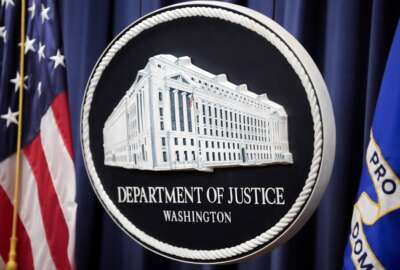Analysis: Management reforms key to rebuilding IRS after scandal
The revelations of improper targeting of conservative groups by the Internal Revenue Service has so far been isolated to lower-level offices. But the former hea...
wfedstaff | April 17, 2015 5:03 pm
The revelations of improper targeting of conservative groups by the Internal Revenue Service has so far been isolated to lower-level offices. But the former head of the IRS says an overall failure of leadership must be corrected if the embattled agency wants to rebuild its reputation.
“You had problems, obviously at the local unit level where, I would just tell you, some people lost their minds for lack of a better term, but then there was no follow-up for the longest time,” said Mark Everson, former IRS commissioner under George W. Bush, in an interview with the Federal Drive with Tom Temin and Emily Kopp. “It took two years to get these criteria corrected and that was really inexcusable.”
Managing the IRS presents several challenges. It employs nearly 90,000 workers spread out across the U.S. in various offices. In fact, the tax-exempt office, which is accused of using inappropriate criteria for selecting applicants for further review, is based in Cincinnati.
The decentralized nature of the IRS — 10 large campuses located around the country — stems from a time when most Americans filed their taxes using paper forms, said Everson, who’s now vice chairman at the Alliant Group.
“As the return-filing has moved to electronic filing, you’ve needed fewer people in those campuses, so jobs were sort of repurposed. … Different assignments were centralized in different places,” Everson said.
IRS workforce challenges
The IRS workforce is also plagued by tightened budgets, declining staff numbers and increasingly complicated workloads, according to a January inspector general’s report.
The $11.8 billion appropriated in fiscal 2012 was more than 2 percent less than the year before, which forced the IRS to institute an agencywide hiring freeze, only filling positions left by departing employees in special cases. By the end of 2012, the total number of IRS employees — 97,717 — had fallen by 9 percent compared to 2010.
“It’s certainly true that the workload is a challenge and could be considered a contributing factor,” Everson said. “That does not in any way, shape or form excuse the conduct in this measure. These people should have known better, the managers should have known better, the front office should have been following this more closely than it was.”
President Barack Obama’s fiscal 2013 budget request, which was released before the latest allegations came to light, proposed a 9 percent increase to the IRS budget, in part because of the expanded role the agency will play in implementation of Obama’s health care plan.
But with new revelations of potentially wasteful conference spending — some $50 million spent on 220 employee conferences between 2010 and 2012 — it seems unlikely that Congress will be sympathetic to increasing the agency’s budget.
New leadership
Danny Werfel appeared before Congress Monday for the first time since being named by President Obama to head the agency on an interim basis. He told lawmakers he has installed new leadership and is a conducting a thorough review to see what went wrong.
“The agency stands ready to confront the problems that occurred, hold accountable those who acted inappropriately, be open about what happened, and permanently fix these problems so that such missteps do not occur again,” he told lawmakers on the House Appropriations Subcommittee on Financial Services and General Government.
Werfel, the former controller of the Office of Management and Budget and a longtime OMB staffer, served under Everson when the latter served as OMB controller in the early 2000s.
“He has a number of advantages in terms of knowledge of the government and ability to hit the ground running there,” Everson said.
But the Obama administration also needs to take a long-term approach, he said.
“The president needs to appoint a permanent commissioner and that individual needs to be vetted by the Senate,” Everson said.
Commissioner Douglas Schulman, appointed by President George W. Bush in 2008, stepped down after his term expired in November. Steven Miller had served as acting commissioner until resigning last month in the wake of the IG report.
An ideal candidate would be “someone who’s independent, a good manager who’s going to be respected by both sides of the aisle, who can slowly but surely regain the credibility of the institution,” Everson said.
Among the top items on the new leadership’s agenda should be outreach to Capitol Hill, Everson said.
“I think if the right person gets in there and works with the Congress and speaks candidly to the American people about what needs to be done, then progress will be made,” he said. “But, make no mistake, it will take years to crawl out of this situation.”
(The Associated Press contributed to this report)
RELATED STORIES:
New IRS head says taxpayers no longer trust agency
Obama appoints Danny Werfel acting IRS head
IRS budget woes, shrinking staff threaten to derail agency
Copyright © 2024 Federal News Network. All rights reserved. This website is not intended for users located within the European Economic Area.





